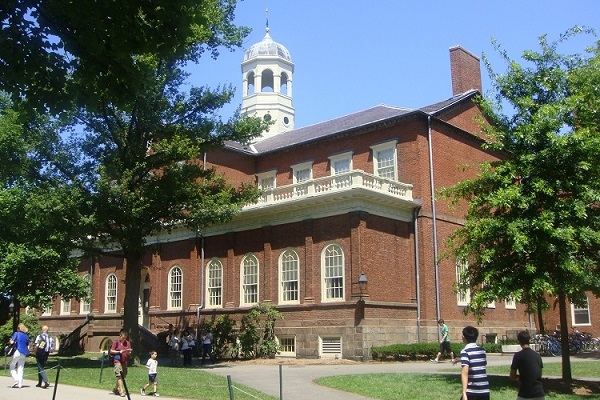New York, (Samajweekly) Harvard University, arguably the world’s premier name in education, has laid bare a troublesome tryst with slavery and earmarked $100 million as reparation.
In a letter to the Harvard community, the University President Lawrence Bacow made public a detailed report, “Harvard and the Legacy of Slavery,” aiming “to uncover truth..(and) embrace it even when it makes us uncomfortable or causes us pain”.
“Enslaved people worked on our campus supporting our students, faculty, and staff, including several Harvard Presidents. The labor of enslaved people both far and near enriched numerous donors and, ultimately, the institution. Some members of our faculty promoted ideas that gave scholarly legitimacy to concepts of racial superiority. And long after the Thirteenth Amendment abolished slavery in the United States in 1865, Harvard continued discriminatory practices that sharply limited the presence of African-Americans in our campus,” said the report Bacow had created under Tomiko Brown-Nagin, Dean of the Radcliffe Institute for Advanced Study and Daniel P.S. Paul, Professor of Constitutional Law and Professor of History.
“We cannot dismantle what we do not understand, and we cannot understand the contemporary injustice we face unless we reckon honestly with our history,” Bacow said.
“As the committee’s report powerfully documents, Harvard’s history includes extensive entanglements with slavery. The report makes plain that slavery in America was by no means confined to the South. It was embedded in the fabric and the institutions of the North, and it remained legal in Massachusetts until the Supreme Judicial Court ruled it unconstitutional in 1783. By that time, Harvard was nearly 150-years-old. And the truth is that slavery played a significant part in our institutional history.”
“Harvard has made much progress in recent decades, but we have much work still to do. Our recent progress must not obscure the reality of our past or the continuing effects of the past on the present.”
“The legacy of slavery, including the persistence of both overt and subtle discrimination against people of colour, continues to influence the world in the form of disparities in education, health, wealth, income, social mobility, and almost any other metric we might use to measure equality. While Harvard does not bear exclusive responsibility for these injustices, and while many members of our community have worked hard to counteract them, Harvard benefited from and in some ways perpetuated practices that were profoundly immoral. Consequently, I believe we bear a moral responsibility to do what we can to address the persistent corrosive effects of those historical practices on individuals, on Harvard, and on our society,” the Harvard University President added.
In addition to shedding fresh light on Harvard’s entanglements with slavery and its aftermath, the report makes recommendations for how as a community the university can redress “through teaching, research, and service” legacies with slavery. Together they represent guideposts as Harvard considers how to approach the future in ways that properly reckon with its past.
The university appointed an implementation committee to be chaired by Martha Minow, the 300th Anniversary University Professor, former Dean of Harvard Law School, and a member of the Committee on Harvard and the Legacy of Slavery.
To provide the resources, the Corporation has authorised a commitment of $100 million for implementation.
Some of the funds will be available for current use, while the balance will be held in an endowment to support this work over time.
In his own letter to alumni, Harvard Business School Dean, Srikant Datar said the Brown-Nagin committee has painstakingly researched a painful truth.
“During the 17th and 18th centuries, the sale and trafficking of human beings “in slavery” and the industries rooted in the labor of enslaved women, men and children were pervasive around the world, comprised a vital part of the New England economy, and powerfully shaped Harvard University. Harvard leaders, faculty, staff and benefactors enslaved people, some of whom labored at the University; accrued wealth through the slave trade and slave labor; and defended the institution of slavery.”
“Harvard’s strength today was built on human subjugation and the systems “including business” that perpetuated it. It is only with and through truth that we can learn from the tragic mistakes of the past,” Datar added.










